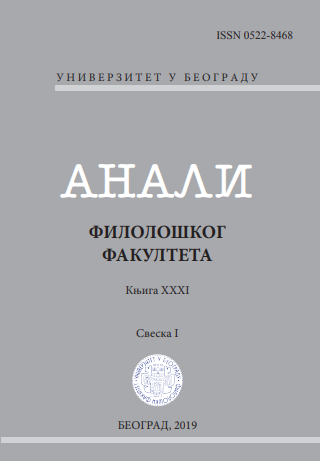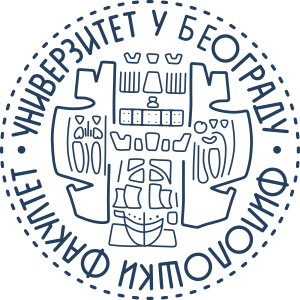Зен мач: утицај зен будизма на јапанско мачевалаштво
DOI:
https://doi.org/10.18485/analiff.2019.31.1.21Keywords:
Јапан, мачевалаштво, зен будизам, празнина, не-ум, Мусаши, Муненори, СохоAbstract
Уметност мачевања у Јапану развијала се још од 12. века, а њено усавршавање било је једно од ствари које је највише заокупљивало владајућу класу Јапана. Сâм период Камакура тесно је повезан са зеном који је, управо тада, први пут уведен у Јапан као независна школа будизма. Велики број ратника окупљао се око бројних зен учитеља а одговарао им је њихов једноставан и непосредан метод подучавања. Наиме, пошто су животи ратника били у сталној опасности, а мачеви једино оружје које је могло да одреди њихову судбину, у Јапану се уметност мачевалаштва развила до чудесног степена савршенства. Зен је умногоме допринео оваквом развоју вештине мачевања у Јапану, а многи мајстори су својим ученицима давали не само савете по питању техника, већ превасходно по питању њиховог менталног става, пре свега по питању њиховог односа према смрти.
Иако је свакако било доста познатих јапанских мачевалаца који су се трудили да рукују мачем по начелима зен будизма, будући ограничени простором, за потребе овог рада смо одлучили да обрадимо и упоредимо дела три мајстора – Мијамото Мусашија, Јагју Муненорија и Такуан Сохоа, који се сматрају најзаслужнијим за сједињење духа зена са духом мача. Надамо се да ћемо анализом њихових дела успети да укажемо на њихову прожетост зен будизмом, чија су основна начела – празнина, не-ум, једноставност, природност – утицали на бројне уметности вештине у Јапану, а у првом реду и на јапанско мачевалаштво.
Downloads
Published
How to Cite
Issue
Section
License

This work is licensed under a Creative Commons Attribution-ShareAlike 4.0 International License.
Authors who publish with this journal agree to the following terms:
- Authors are confirming that they are the authors of the submitting article, which will be published (print and online) in the journal Anali filološkog fakulteta by the Faculty of Philology, University of Belgrade (Faculty of Philology, Studentski trg 3, 11000 Belgrade, Serbia). Author’s name will be evident in the printed article in the journal. All decisions regarding layout and distribution of the work are in hands of the publisher.
- Authors guarantee that the work is their own original creation and does not infringe any statutory or common-law copyright or any proprietary right of any third party. In case of claims by third parties, authors commit their self to defend the interests of the publisher, and shall cover any potential costs.
- Authors retain copyright and grant the journal right of first publication with the work simultaneously licensed under a Creative Commons Attribution-ShareAlike 4.0 International License that allows others to share the work with an acknowledgement of the work's authorship and initial publication in this journal.
- Authors are able to enter into separate, additional contractual arrangements for the non-exclusive distribution of the journal's published version of the work (e.g., post it to an institutional repository or publish it in a book), with an acknowledgement of its initial publication in this journal.
- Authors are permitted and encouraged to post their work online (e.g., in institutional repositories or on their website) prior to and during the submission process, as it can lead to productive exchanges, as well as earlier and greater citation of published work.





